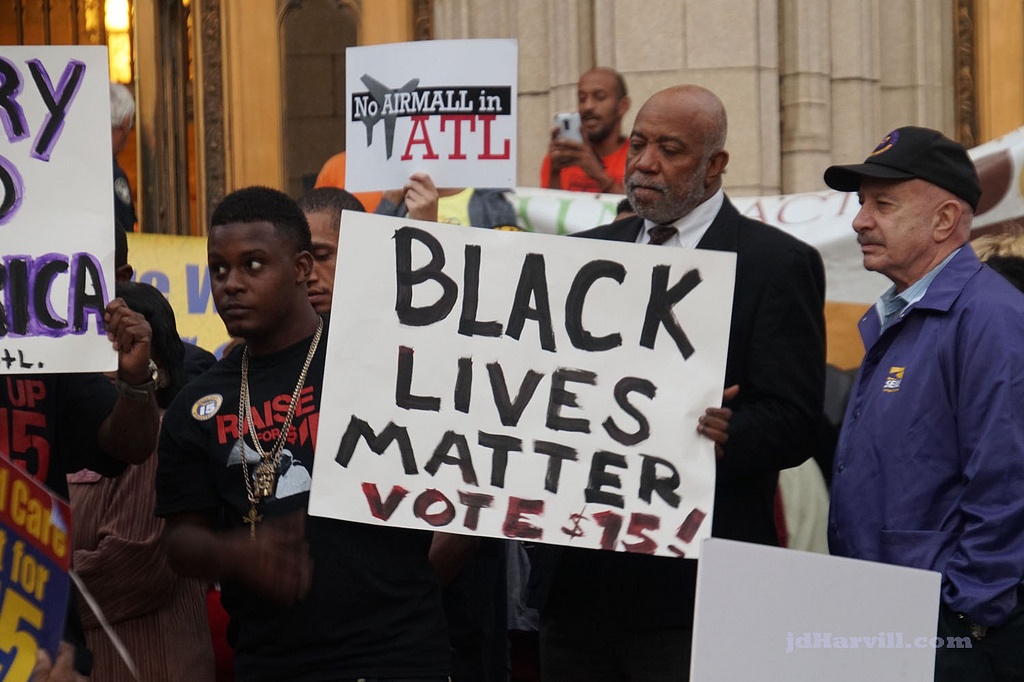INSTITUTE INDEX: Taking the Fight for $15 to the heart of the old Confederacy

(Photo of a 2015 Fight for $15 rally in Atlanta by Hotlanta Voyeur via Flickr.)
Date on which the first-ever Fight for $15 Convention will kick off in Richmond, Virginia — the capital of the former Confederacy, which was chosen by organizers to highlight the overlap between racial and economic justice: 8/12/2016
Date on which convention participants will take part in a march on monuments to the Confederacy led by Rev. Dr. William J. Barber II, president of the North Carolina NAACP and the social justice group Repairers of the Breach: 8/13/2016
Number of workers expected to take part in that march: 10,000
Since the Fight for $15 movement began four years ago, estimated number of U.S. workers who have gotten significant raises because of its victories: almost 20 million
Percent of U.S. workers who currently earn less than $15 an hour: 42
Percent of black workers who do: more than 50
Percent of Latino workers: more than 60
Annual cost to U.S. taxpayers of low wages and lack of benefits in the fast-food industry alone: at least $3.8 billion
Number of states with laws setting minimum hourly wages above the federal standard of $7.25: 29
Number of those states that are in the South: 3*
Number of states that don't have a state minimum wage: 5
Number of those states that are in the South: 5**
Date on which fast-food workers and civil rights groups, citing “racial animus,” filed a federal lawsuit against Alabama Gov. Robert Bentley (R) for signing into law a bill that bars cities from adopting minimum wage ordinance as majority-black Birmingham did: 4/28/2016
Level to which Democratic presidential nominee Hillary Clinton supports gradually raising the hourly minimum wage: $15
Level to which Republican presidential nominee Donald Trump supports raising it: $10
Among low-wage workers who are not currently registered to vote, percent who say they would definitely or probably register if there were a candidate supporting a $15 minimum hourly wage and union rights: 45
* Arkansas ($8), Florida ($8.05) and West Virginia ($8.75).
** Alabama, Louisiana, Mississippi, South Carolina and Tennessee.
(Click on figure to go to source.)
Tags
Sue Sturgis
Sue is the former editorial director of Facing South and the Institute for Southern Studies.
